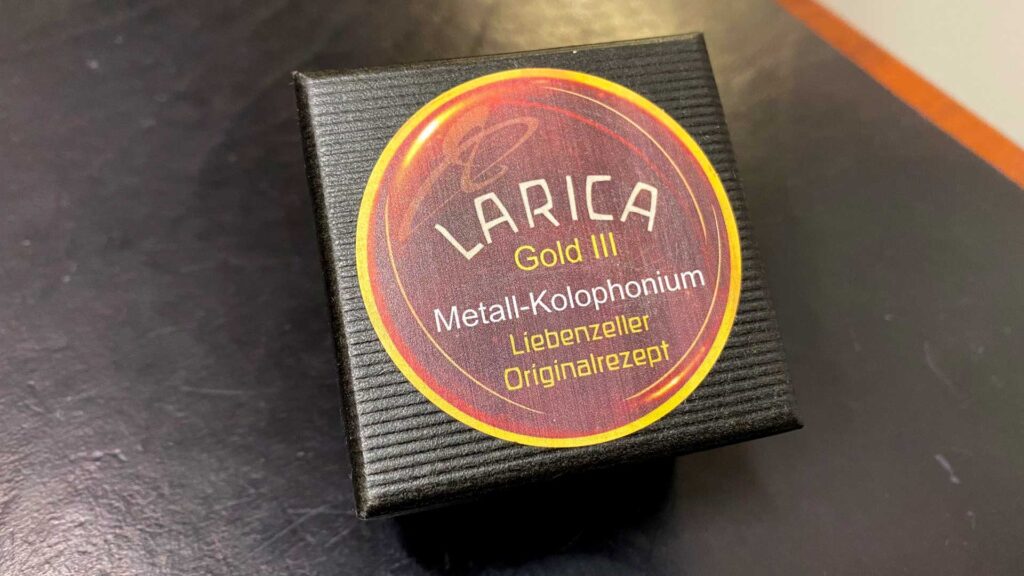
The number one call we get from parents of beginning string students is, “the bow is broken, we pull it across the string and there is no sound.” Some of you have already guessed at the problem – no rosin. Rosin is an essential component of the vibration chain that produces sound from the instrument. The stick of the bow holds the bow hair taut, the rosin on the hair creates the friction that causes the string to vibrate, the string vibrations travel through the bridge to the top of the instrument and the instrument amplifies those vibrations into the sound we hear. Without the rosin, the chain is broken.
Why are there so many varieties of rosin? First, each instrument in the violin family (violin, viola, cello, and bass) requires a slightly different formula to be effective. Because of the mass of bass strings, the rosin for bass is correspondingly sticky. Bass rosin on a violin bow is not a good idea! There are also different rosin formulas for different climates. A hot and humid climate will need a different rosin than a cold and dry climate. There are different purities of rosin, the more premium brands are typically formulated with purer raw ingredients. Different metals are added to rosin – gold, copper, etc. Each metal imparts a slightly different playing characteristic for the rosin.
Ultimately, you need to find a rosin that works with both your preferred strings and your playing style. Thankfully, most rosin options are under $30 and it can be economically possible to experiment with two or three recommended varieties. Come in and see us to talk about the perfect rosin for you!

Recent Comments